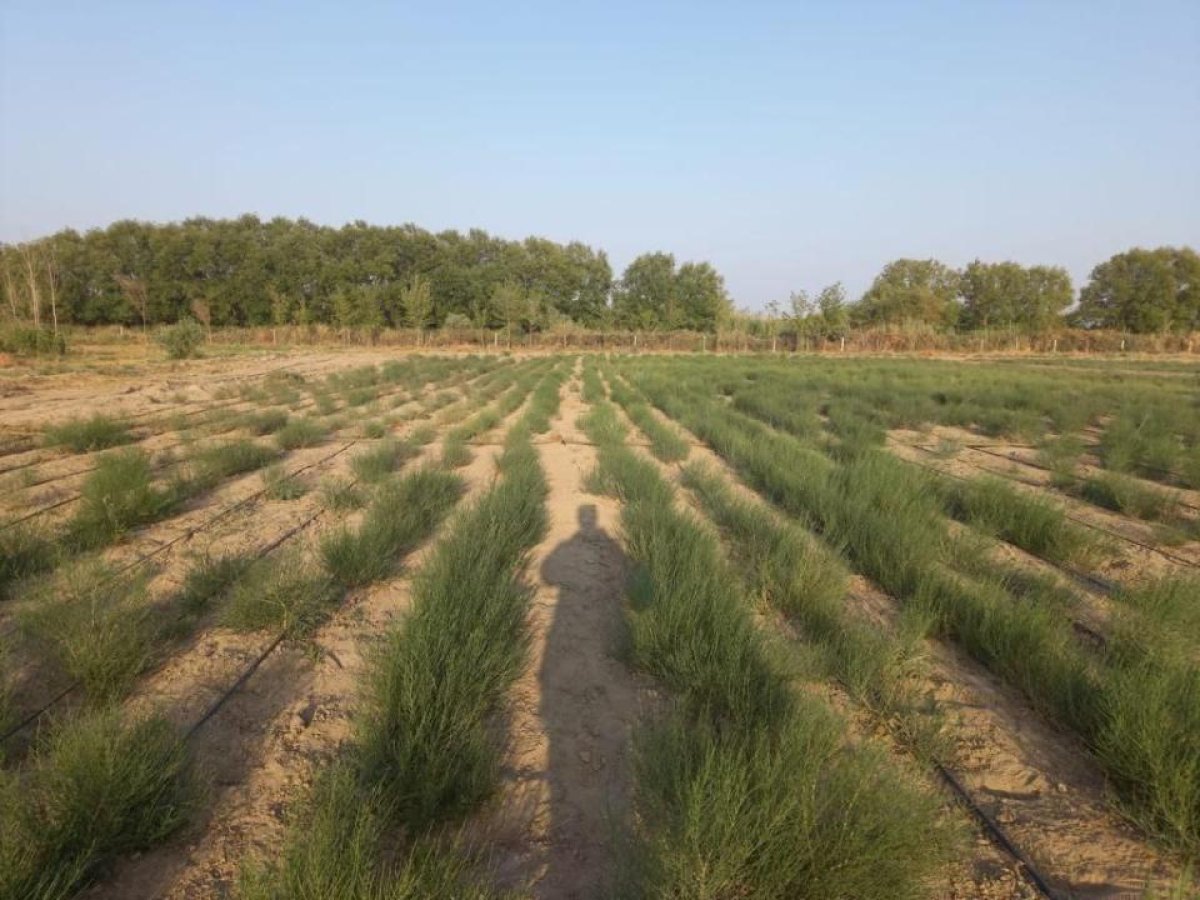ASTANA – Kazakhstan is set to plant saxaul trees on an additional 275,000 hectares of the drained bottom of the Aral Sea this year to prevent dust storms in the region and cover 1.1 million hectares until 2025, reported the Kazakh Ministry of Ecology and Natural Resources on Jan. 8.

Photo credit: Ministry of Ecology and Natural Resources
Planting saxaul trees has proved to be one of the most effective tools to combat increased amounts of sand and salt that appeared due to the draining of the Aral Sea.
To obtain the maximum survival rate of saxaul, forest reclamation work is carried out on the basis of scientific recommendations and working projects. The scientists made soil surveys on an area of 753,000 hectares so far. Over the past three years, 544,500 hectares of forest were planted.
Given the scale of the Aral Sea disaster, the ministry cooperates with international organizations, including the International Fund for Saving the Aral Sea (IFAS), the World Bank, the German Agency for International Cooperation (GIZ), the United States Agency for International Development (USAID), Korea Forest Service, among others.
In the near future, it is planned to complete the construction of a forest nursery on the bottom of the Aral Sea with an area of 33 hectares. This nursery will work as an experimental site for the State Forest Selection and Seed Center, where a genetic bank of forest seeds, including saxaul, which will become the main species of man-made forests at the bottom of the Aral Sea, is stored.
Uzbekistan’s Ministry of Emergency Situations reported on planting more saxaul trees in the desert zones of the Khorezm region on Jan. 8. The Uzbek administration plans to green more than 10,000 hectares of desert area.
In 2021, specialists from Uzbekistan and Kazakhstan exchanged experience in planting saxaul and combating desertification of the Aral Sea. As a result of the visits, the sides agreed to make a new effort to restore the Aral Sea ecosystem.
The Astana Times participated in a press tour to the dried-out Aral Sea bottom last year, reporting on the Aral Sea crisis and the Uzbek government’s response.

